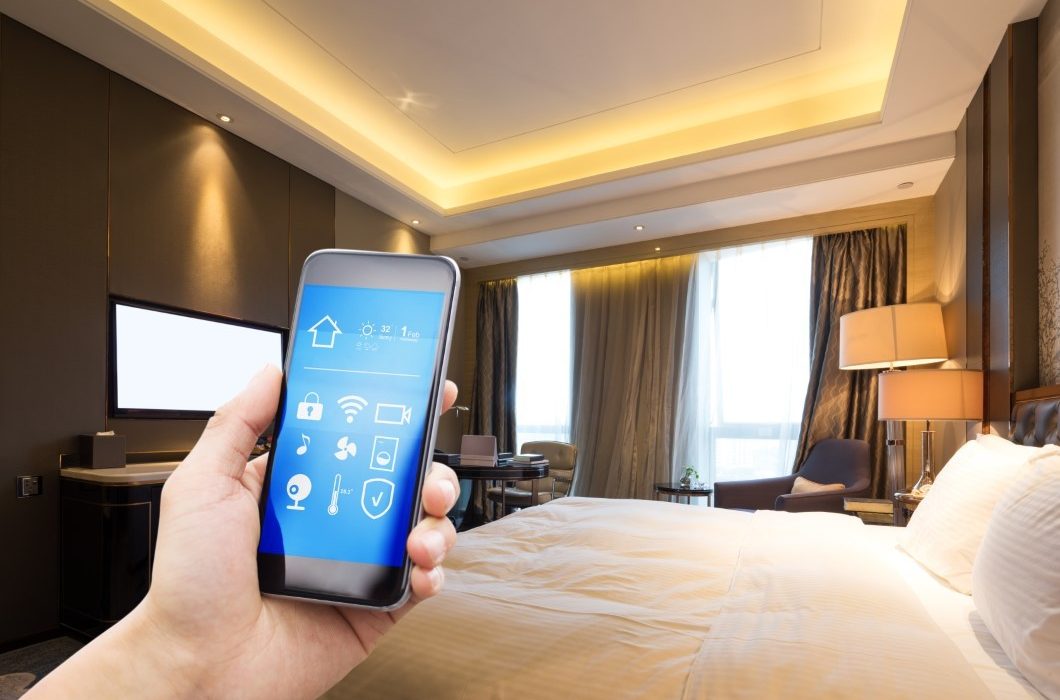
You might also like:
A long queue at check-in, hotel rooms cooled to refrigerator temperatures, and an abrupt end to a good night sleep. Such a trip is not very relaxing. Digital technologies could turn many hotel rooms into a feel-good location. A study reveals what the hotel of the future should look like.
Check-in could take place via smartphone. TV stations, light, and temperature are set to suit the preferences of the hotel guests – and their favorite snacks are already available. This is how travelers imagine the hotel of the future.
As a representative survey of 1,012 consumers on behalf of the digital association Bitkom shows, seven out of ten respondents, for example, want the hotel service to recognize whether the guest is in the room or not. Unpleasant disruption could be avoided this way. 28% would like to be able to control light, temperature, and music using an app on their own smart phone or through voice recognition.
Moreover, almost one in four guests in the hotel of the future would like to check-in with a robot without waiting. 19% of respondents would like to be able to open and close their hotel rooms using a smartphone app.
Many technologies are already available for the hotel of the future, say experts. The opportunities for hoteliers to attract new customers and become more efficient are huge, and guests’ expectations are high. For hoteliers it is becoming more and more important to adapt to target groups who are interested in technology. Especially for the young target group many services, which are already technologically representable today, can be the decisive reason for a booking.
There is also a great deal of openness about other services that will be possible in the future. For example, just under eight out of ten respondents would want to use a service that automatically orders a taxi to the airport later, when the flight is delayed.
Virtual reality also plays a big role. 54% say that they would like to make a virtual journey to an existing or even fictitious place from the couch. In the target group of 16-29 years old, the number rises to 67%. 48% of those surveyed would like to watch 360-degree holiday videos with virtual reality glasses.
Source: tourism-review.com
